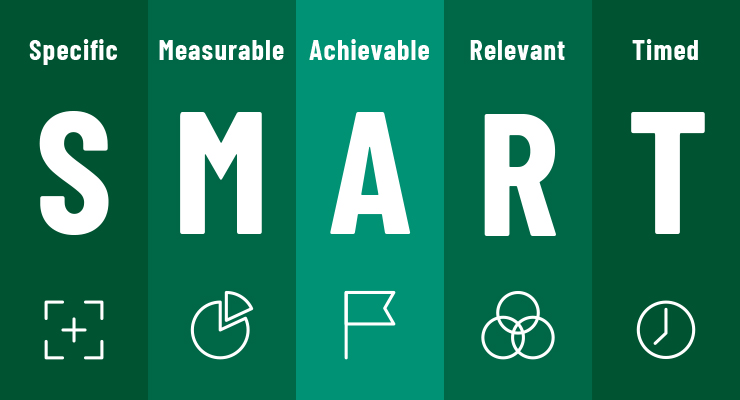New Year, New Beginnings: Adjusting to Campus Life after the Holiday Break
By Alisha Durosier | Last Updated: Mar 5, 2025

There’s nothing like a break in between semesters to help you reset. You can take the time to rest and spend time with family and friends free of worry about an 11:59 p.m. deadline. It’s your time to hibernate. It can, however, be difficult to transition out of hibernation mode and get back into the groove of the classes, assignments and extracurriculars the new semester will entail. Here’s a guide to help you ease your way back into campus life after the holidays.
Get Organized Early
Before the semester starts, it is important to get a good idea of what your academic responsibilities will entail and plan accordingly. In the past, I have found that even the most challenging courses became a little less stressful after a little organization. Here are a few methods to get yourself organized in preparation for the new semester.
Pick a Planning Tool
Use a planner, calendar, or journal to record your class schedule, important dates, deadlines, and reminders. Whether physical or digital, having a place to store the important stuff not only helps you manage your academic responsibilities, but it gives your brain the extra space it needs to function efficiently. I use multiple modes of planning because, in their own special ways, they help me keep track of my schedule and growing to-do lists. What I use most is a digital calendar. It helps me to plan my days by allowing me to designate time for specific obligations, whether It’s important meetings or quality time with friends.
Look at Your Courses’ Syllabi
Professors usually have their course syllabus available to students before classes officially start. Take a moment and read through your courses’ syllabi and make note of the course objectives, required materials, and policies. Using your planning tool, take down assignment deadlines and exam dates. That way, you won’t be blindsided by the incoming course load.
Make Goals
Like the new year, enter the new semester with new semester resolutions. Setting goals for your semester can help you maintain focus and stay accountable. Here are a few ways you can approach creating goals for the new semester.
Create SMART Goals
SMART stands for specific, measurable, attainable, realistic and time bound. To help make your goals achievable this semester, follow the guidelines of the SMART acronym.
- Specific: Identify what it is that you want to accomplish. Avoid making your goals too vague and be sure that they are clear and detailed. To do so, you can model your goals to answer the questions who, what, when, where and why.
- Measurable: Having measurable goals will allow you to see your progress; this way you can notice your accomplishments and when you’ve met your goal.
- Attainable: Be sure that your goal is realistic based on your own skills and resources. Consider your possible limitations and create goals you can be successful at achieving.
- Relevant: Make sure your goals pertain to you and your desires.
- Time bound: Whether short-term or long-term, create a deadline or mini milestones to help you create a timeline for your goals.
Create a Reward System
Celebrate the achievement of your goals or even the milestones that signify your progress. I like to celebrate all achievements, big or small, with a sweet treat or a visit to the nearest independent bookstore. This will help increase your motivation and let you enjoy your achievements a little more. You’ve earned this!
Form a New Routine
Having a healthy, consistent routine is important because it provides structure, which can prevent you from getting overwhelmed. Before the start of the semester, build a routine that will help sustain you. Here are a few things you can do to start establishing a routine.
Establish a Healthy Sleep Schedule
A lack of sleep can impact your focus and your mental health, as well as your overall health. So, establish a consistent sleep routine so you can keep yourself healthy and maintain your academic performance. To figure out a routine that works best for you, experiment with the hours of sleep you get each night and pay attention to how your body feels when you wake up. I found that 6 hours of sleep is enough for me to feel well rested. Sleeping more than 8 hours a night, however, makes me feel groggy and more tired, so I now prioritize getting about 6-7 hours of sleep.
Implement Rest into Your Routine
Resting doesn’t end with your holiday break. Rest also doesn’t always look like sleep — it includes forms of self-care like, reading a book, taking a walk outside, or doing a puzzle. At the end of each day, I like to put on a podcast or my favorite playlist and thoroughly work my way through my nightly skincare routine. Implementing self-care as a daily practice has helped me relieve any anxiety or stress I might’ve carried throughout the day. Prioritize rest in your schedule to help prevent any burnout the new semester might cause.
Start Early
Try to start practicing your routine at least a week or two before the semester begins. This will help you transition into your school schedule more seamlessly. For instance, without any classes or meetings, my sleeping patterns become rather irregular. So, before the upcoming semester starts, I schedule a bedtime and wake up time that aligns with my class and work schedule. Doing so allows my body to get used to the more structured sleep routine the new semester will demand.
Reflect on Your Last Semester
Reflect on your last semester and assess what worked and what didn’t work for you. This will help you as you build a routine that will better serve you in the new semester. Reflection has certainly helped me identify my mistakes. For instance, when I reflect on previous semesters, I often recognize moments where I may have overexerted myself. When I tweak my routine, I now take into consideration ways I can avoid overexertion. Here are some tips to help you in your reflection.
- Be gentle in your approach. When reflecting on past circumstances, it can be difficult to avoid beating yourself up. Try not to partake in harsh self-talk and don’t be so hard on yourself; mistakes occur so that you can learn.
- Ask yourself the right questions. You can also approach your reflection as if you are having a conversation with yourself, so ask yourself questions. Here are some examples.
- What was most challenging? Are you satisfied with your response?
- What did you prioritize? Did they align with your personal priorities?
- What were you most proud of? What were you not proud of?
Need Support during This Adjustment?
Transitioning into the new semester may cause a sense of anxiety to arise. It is important that in the midst of this transition that you give yourself grace and ask for any assistance you may need. You can reach out to USF’s Counseling Center to discover ways in which you can receive support.


